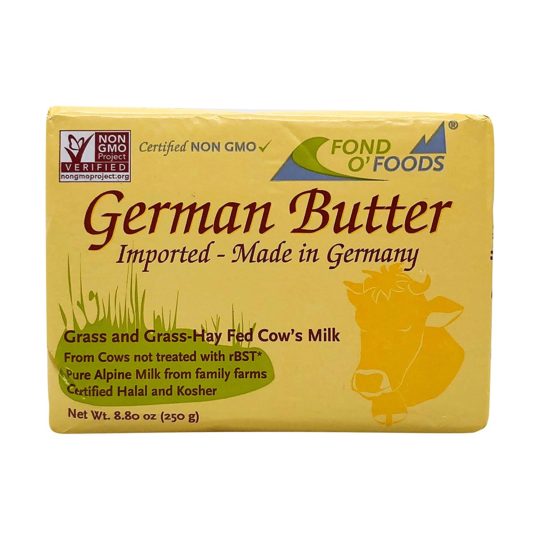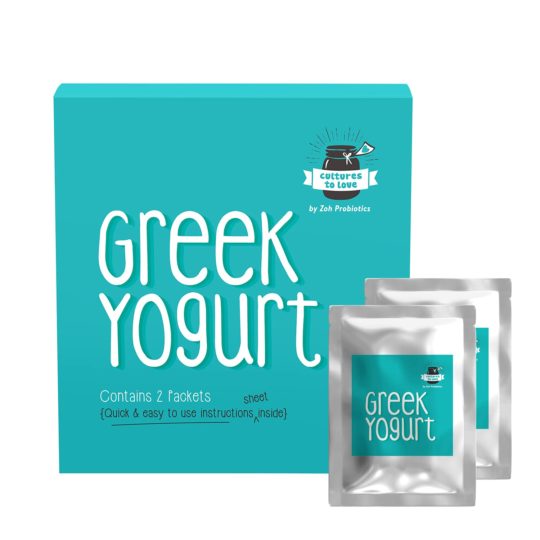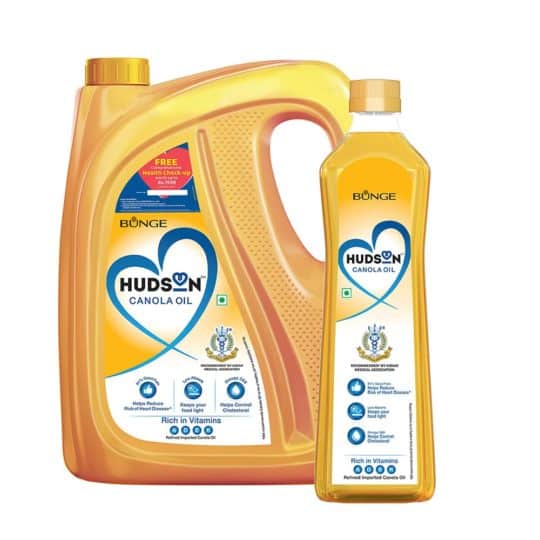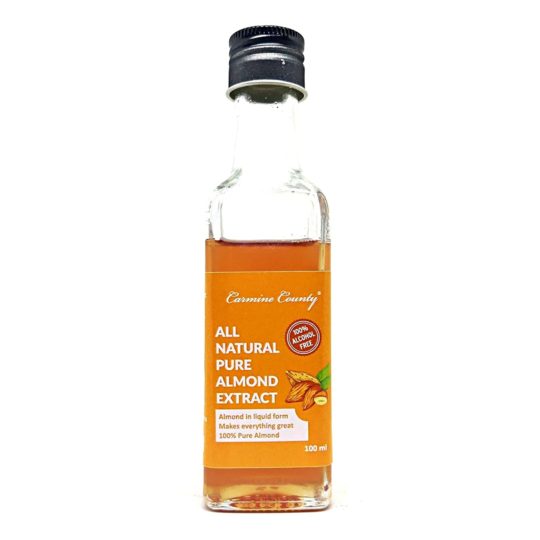It’s hard to come across any rich recipe that doesn’t include butter on its list. And for many, this request comes with the fear of eating healthy, which is why the butter extract became a saving grace. It replaces the perks of adding butter to tons of recipes and removes the worry of eating high-fat foods. But sometimes, even an ingredient as favored as it is can be doubted.
So, having helpful substitutes like the ones below can be a light at the end of a dark, frustrating search tunnel. And these options are impressively convenient, plus they work as flexibly as butter extract. But before you choose, it’s good to know what you’re replacing. And knowing what makes butter extract so unique may be the key to opening your mind to the possibility of handy replacements.
What is butter extract?
Butter extract or butter flavor is, in the simplest term, a concentrate of real butter. It’s made by combining some ingredients to create a robust butter flavor. Most times, the primary recipe for butter extract includes water, alcohol, butter extractives, and natural butter flavor. The alcohol content is usually recommended to at least 35%, as it’s expected to be the preservative element in the composition. And sometimes, butter extract can be made to meet non-dairy, sugar-free, and gluten-free requirements.
What does butter extract do in recipes?
As the name implies, butter extract supplies a powerful burst of butter flavor to recipes. And it does so with tons of advantages compared to the original thing. For one, it has few calories, thanks to its low-fat composition. And it’s also needed in small amounts, meaning you’ll get more from less.
Butte extract works in virtually every recipe that requires butter, but it’s mainly used for baking. Here, it works the same as butter and infuses more flavor due to its high concentration. You can also use it in raw dishes and other regular recipes that call for butter. Some places where it works excellent include
- Pancakes
- Bread
- Sauces
- Cakes
- Cookies
- Rolls
- Pies
- Stir-fries
- Waffles
- Frostings
- Custards
- Brownies
- Norwegian Krumkake
- Puddings
- Salads and dressings
- Jam
- Soups
- Hot chocolate mix
- Butterbeer
- Cupcakes
- Buttercream icing
- Butter ice cream
- Thumbprints
- Fondants
- Smoothies
- Pizelles
- Syrups
Substitutes for butter extract
Some may wish to forsake butter extract because it contains alcohol. And others may worry about its dairy content since it’s made from real butter. And even when some vegan options are available, you may not find them in stores around you. And this problem can cause challenges for lactose-intolerant people as well.
But all isn’t lost, as you can still make your dishes pop with a rich taste. And these substitutes are a splendid way of making it happen;
Butter

If you’ve run out of butter extract, you can consider going for the source. Where else would you get the same flavor fullness and richness if not from real butter? It makes an excellent substitute for butter extract in all recipes. And it’s super convenient; you probably have a stick in the fridge as we speak! Butter works in cakes, pastries, soups, and sauces. Plus, it’s a great way to infuse a creamy flavor to salads, cold desserts, and frostings. You can also use it in grilled recipes and add creaminess to chicken breasts and stir-fried dishes.
When using this option, always go for the unsalted variety as it allows more flexibility in taste. Then, melt half the stick, and add it in small amounts until you’ve reached the desired flavor. Using this method ensures the dish’s consistency isn’t disturbed. And only consider this substitute if you aren’t vegan, lactose-intolerant, or counting calories.
Vanilla Extract
It’s no surprise many argue that both vanilla and butter extracts are the same. But the truth is they aren’t, as while one is purely derived from plants, the other has an animal source. But the confusion mainly comes from their flavor similarities as both vanilla and butter extract offers a creamy sweetness to dishes, especially baked goods. So, if you have a bottle of vanilla extract in your kitchen, it makes an excellent substitute for butter extract.
Vanilla extract is popularly added to baked goods and sweet treats. As such, you can use it in similar recipes that call for butter extract. It’s also a perfect addition to puddings and custards and can also work in frostings and creamy toppings. But it’s more intensely flavored, so you’ll need about ¼ to ½ of what’s called for in butter extract as a replacement.
Greek yogurt

Greek yogurt is recognized for its health benefits, which explains its numerous features in many recipe lists. But it also works ideally as a replacement for butter extract due to its creamy flavor. Greek yogurt works in savory and sweet dishes and is renowned for keeping baked goods moist and tender. Plus, it’s sugar-free, fat-free, and packed with probiotics, making it one of the healthiest replacements.
But it has a slightly tangy flavor that may mask its creaminess if overused. So, stick to the 1:1 ratio when substituting Greek yogurt with butter extract. This measurement works in most recipes, including muffin batter and fruit bread.
Canola oil

One primary advantage that makes canola oil a splendid substitute for butte extract is its neutral flavor. This factor makes it somewhat close to unsalted butter, so only the light creaminess of the oil can be noticed. Plus, canola oil is one of the most commonly found cooking oil, so it’s a highly convenient option for the tight situation. And because of its plant base, canola oil is perfect for vegans, non-dairy diets, and people with lactose intolerance.
Canola oil is also commonly used as a butter substitute in baking, so it efficiently works in such cases. But it’s not as intensely flavored, plus the fluid consistency may affect semi-liquid dishes. So, it’s recommended to only use about ¼ cup of canola oil for each teaspoon of butter extract.
Almond Extract

Swapping one extract for another can be tricky, especially when you’re not familiar with their flavor comparisons. But almond extract makes a fantastic replacement for butter extract in lots of situations. While it’s nutty in flavor, the substitute works for vegans and lactose-intolerant people. Plus, it’s flavor is rich and full, surfacing in any recipe it’s used.
Almond extract is especially perfect for baking, as it contributes an extra note of sweetness to the recipes. But it’s not great for custards, as the consistency will be affected. Still, you can use equal amounts of almond extract as a substitute. But note that you’ll notice a hint of nuttiness in the flavor, plus less creaminess compared to butter extract. Also, avoid this substitute if you’re allergic to nuts.
Frequently asked questions (FAQs)
What can I use in place of butter extract?
Any of the listed options above will work perfectly as butter extract substitutes. But you can also consider applesauce and almond butter if you have some. Sunflower, olive, and soyabean oil can also work, as well as melted coconut oil. But always consider factors like differences in flavor and consistency and allergies when choosing these options.
What is natural butter extract?
This extract mimics authentic butter flavor and contains water, ethyl alcohol, and natural butter flavor (diacetyl). It’s also gluten-free, sugar-free, non-dairy, and vegan-friendly.
Does butter extract go bad?
So long as butter extract stays in liquid form, it retains its quality for a long time, maybe indefinitely. But an excellent way to be sure your butter extract is still good is to sniff it. If it still gives the same aroma as when it was first bought, use it. The same applies to its taste, should you consider doing so before cooking. But once the taste is bland and the aroma absent, it’s no longer viable.
Conclusion
Undoubtedly, butter extract is an easy-peasy way to infuse butter flavor into your cooking without the extra calories. But you can’t always depend on it for every situation. So, consider these substitutes and select whichever best suits your dietary and culinary needs.
